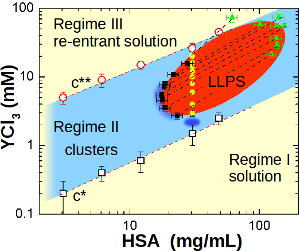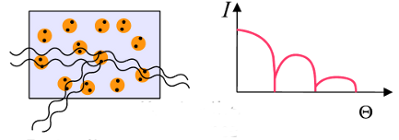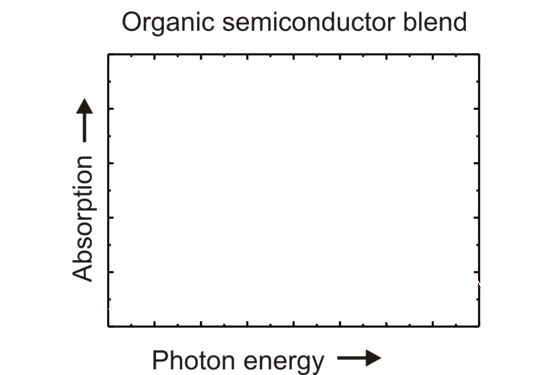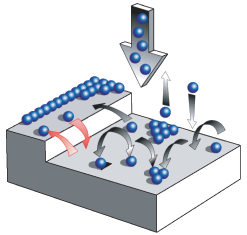Open Positions
Student Projects and Practicals -
Independent Studies -
Projects for Future Teachers -
Bachelor and Master Projects -
PhD Projects -
Post-Doc Positions -
Introductory Reading Material
Below you find topics for possible thesis projects (bachelor and master level)
as well as open positions (PhD projects and post-doc positions). Please note, though, that due
to the rapidly evolving research the information is of course subject to change. Importantly,
all thesis projects connect to our main areas of research.
The information on the homepage should give a first introduction, but is also not a
substitute for a discussion in person, so feel free to contact us to arrange a meeting. Also,
if you wish to pursue your own ideas and/or apply for a fellowship and wish to have our support,
please contact us directly (Frank
Schreiber).
Student Projects and Practicals |
|---|
|
Students interested in HiWi projects and practicals are welcome. We are continuously looking for motivated students to work in all areas of research conducted in our group. Typical topics are
- Real-time study of protein
crystallization (details)
- Phase behaviour in protein solutions (details)
- Protein interactions and aggregation controlled by
charges (details)
- Student assistant with a background in condensed matter physics
(details)
- Infrared spectroscopy of biomolecules at solid/liquid interfaces
- Data analysis and software development
Also, students interested in working abroad in a laboratory collaborating with us (e.g., at the ILL in
Grenoble
(Summer student programme ILL/ESRF
2025) or at the University of Oxford) may contact us for details.
|

|
Independent Studies |
|---|
|
Work placement opportunities at ILL, Grenoble
(flyer)
We can suggest
several destinations, but we have to emphasize
the following:
- We cannot ensure funding of these stays, although some may be able to provide local support (dorms
(Studentenwohnheim) and maybe consumables (food)).
- Please first contact Frank Schreiber and
remember to send (in English!) a meaningful CV and transcript of records together with your first email
of contact. Mention in brief keywords in particular non-standard skills you might have acquired, such as
programming or language skills beyond highschool English.
- For the "independent studies" remember that you can also stay in Tübingen and do course work or work
in the lab as an extended internship (Praktikum). This may not look particularly adventurous, but can be
remarkably beneficial. It may also prepare you for a more fruitful and productive stay abroad (e.g.,
during the master or the PhD thesis), since you receive training in the lab which future hosts abroad
may value. There are very good examples for this.
|
Projects for Future Teachers (Lehramtler) |
|---|
|
We also offer different projects, which are suitable as "Zulassungsarbeiten für Lehramtler". For
example:
- Test and documentation of a quartz crystal microbalance with monolayer sensitivity
- Test and documentation of a photoelectron spectrometer
- Test and documentation of a 4-circle X-ray diffractometer
- Designing laboratory experiments and description of practicals for students from medical faculty
|

|
Bachelor and Master Projects |
|---|
|
Nano Science III - Winter Term
2023/24
We offer interesting projects in all areas of research of the group, namely
- Modeling and analysis of neutron scattering experiments for protein diffusion and cluster
formation (details)

- Machine learning for fast analysis of scattering
data (details)

- Structure analysis of perovskite hybrid solar cells
(details)

- Real-time study of protein
crystallization (details)
- Phase behaviour in protein solutions (details)
- Protein interactions and aggregation controlled by
charges (details)
- Protein adsorption at solid-liquid interface
(details)
- Organic
photovoltaics (details)
- Metal-organic interfaces (details)
- Growth dynamics of organic thin films using in situ X-ray scattering and optical
spectroscopy (details)
- Coupled organic-inorganic nanostructures (COINs) studied with X-ray
scattering (details)
Specific bachelor projects within the nanoscience and physics course are best discussed
with Frank
Schreiber, Fajun
Zhang,
and Alexander Hinderhofer. Please contact us even if the specific topic is not listed here.
|
- 
|
Post-Doc Positions |
|---|
|
We are continuously looking for motivated Post-Docs to work in all research areas of our group. If you are interested in joining our group on the post-doc level, please do not rely on the specific openings and write to
Frank Schreiber.
- Open position for a post-doc with with a background in scattering (details)

Candidates interested in a
fellowhip should consider these
general recommendations and follow the links below for more information:
For more information on the University of Tübingen, see
Working at the University of Tübingen
as well as the post-doc testimonial video.
|





